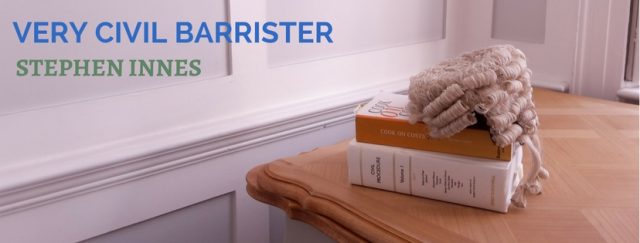
Here are my top ten tips to help you get the most out of direct access:
1. Think carefully about whether any alternative sources of funding might be available to you, such as legal aid or insurance cover such as legal expenses provided by a household insurance policy. Legal aid for the types of civil cases that I cover is rarely available, but you can obtain more information from www.gov.uk/community-legal-advice.
2. For further information about direct access, read the guidance produced by the Bar Standards Board on its website.
3. You may find it helpful to prepare a short summary of what your case is about: eg, who are the other parties, what is the dispute about, how far has it got, how much is at stake, what is the other party alleging?
4. Similarly, try to think about what level of help you might need: what can you do yourself and what tasks will you be asking me to do or help with? Do you need advice on the merits of your case?
5. If you are involved in litigation, you will be acting as a “litigant in person”. If you are successful in getting a costs order made or agreed in your favour, you can claim for the costs of your time. I recommend keeping a diary or log of all the time you send working on your case, with a description of the work done.
6. Clients who are or may be involved in litigation often find it helpful to have some guidance on what steps may be required in the process with likely timescales, so that they know what to expect and can plan ahead. You should consider whether or not to ask for this.
7. If you have lots of documents relevant to your case, you will need to ensure these are kept safe. If you send documents to me, you should keep the originals and only send copies.
8. The better that you are able to organise the documents, the less the time (and therefore the cost) that it is likely to be required for me to work through them. The ideal approach is to make copies of the documents and them organise them in a folder. It helps to paginate the bundle so we can quickly refer to the same documents. Try to organise the documents into a logical order, such as by category and chronological. If there are more than a handful of documents, an index is very helpful. If you are in doubt, please ask for guidance.
9. If there is a deadline for any work, please make that clear. Please try to provide the papers as far in advance as possible: remember that I will be managing deadlines on other work at the same time; and if a piece of work is left to the last minute, there is a danger that it will take longer than you may expect: for instance it may become apparent that more information is required before the work can be completed, or if a document is being drafted, we may then need to liaise on making any revisions before it is finalised.
10. Do not be afraid or reticent about asking questions. It is important to me that you understand what we are doing and why we are doing it at all times. If you have a view on how you think something should be done, it is far better to raise it at the time, than to leave it until afterwards when it is too late.
Stephen Innes
August 2017
